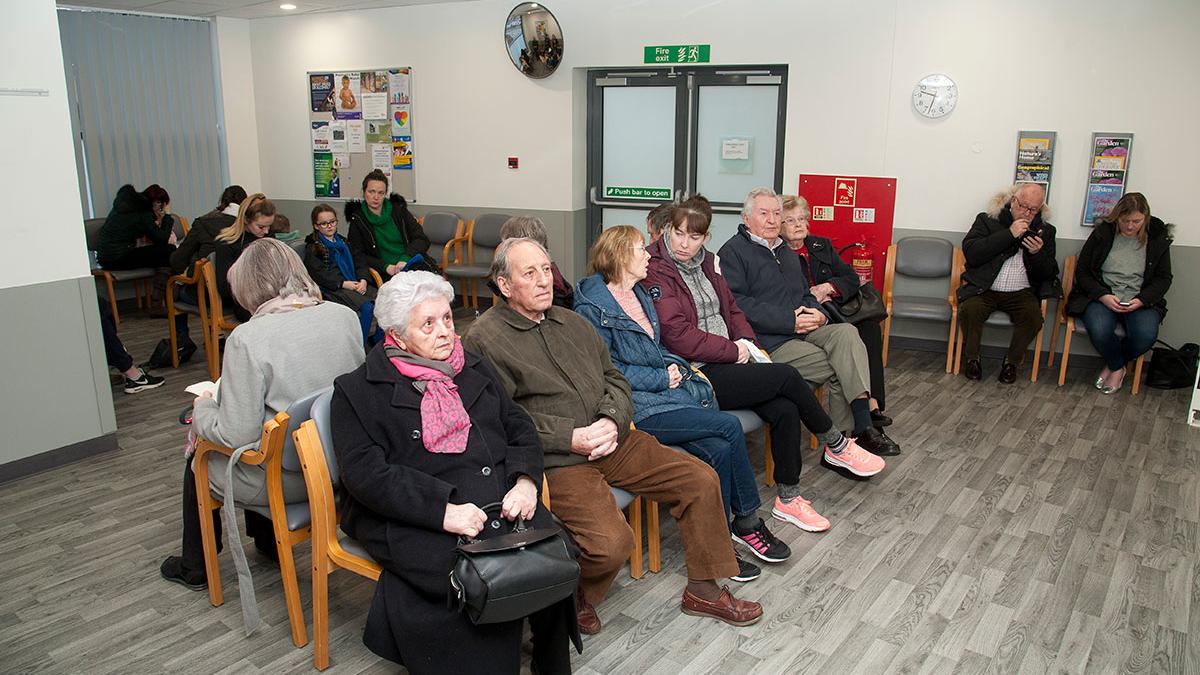The growing potential of general practice physio roles

The potential of general practice physiotherapy roles is increasingly being recognised by UK policy makers. In practice, change is already happening.
Charlotte Southgate damaged her coccyx when she slipped taking part in the famous annual plastic duck race in Farnham, Surrey. The accident was a source of amusement to her friends but that didn’t diminish Ms Southgate’s pain and discomfort – and eventually she realised professional help was the answer.
What surprised her was how quickly she received that help. Within days of phoning her GP surgery to explain her predicament, she was assessed by a first contact physio (FCP) within the practice.
‘It was fantastic,’ says Ms Southgate. ‘He checked my movement and my spine and then gave me exercises to help relieve the pain. He said I could come back in a few months if it was still bad. But the biggest thing was the reassurance that I hadn’t done anything to my whole spine. And it was a lot less stressful than going to outpatients.’
Farnham Integrated Care Services’ (FICS) musculoskeletal (MSK) practitioner service is one of a growing number of practices where advanced practice physios are now able to assess and treat patients with MSK problems without referral. The move, supported by NHS England, is aimed at enhancing the patient’s experience and reducing GPs’ workloads.
Given that MSK problems make up around a fifth of all GP appointments, first contact physiotherapy is an obvious solution. It doesn’t just ease the pressure on GP caseloads but costs less – and, most importantly, could improve patient outcomes.
As Anna Rubio, one of Farnham’s five FCPs, puts it: ‘It makes sense for the patient, who gets the right care first time. It also means that secondary care should be receiving more appropriate referrals because we will already have triaged these patients.’
Offering more options

FICS, a cluster of five practices serving a population of around 45,000, has been offering FCP sessions since March 2018, seeing an average of 80 patients each week.
Patients with MSK problems will initially be triaged by reception staff trained to apply agreed criteria. In most routine cases, patients will then be seen by the FCP – usually within five days – but urgent cases can be seen the same or next day.
Sessions last 20 minutes, during which FCPs will offer specialist MSK assessment and diagnosis, and provide advice and treatment if appropriate – but not ongoing treatment packages. ‘If there is an ongoing issue we can refer to secondary care or other physiotherapy services, just as a GP would,’ says Ms Rubio. ‘But, if we can, we’ll encourage self-management.’
FCPs can also refer for tests or scans, as well as doing injections and offering social prescribing.
Ms Rubio has specialised in MSK physiotherapy for 16 years and feels FCP draws on all her skills and know-how. ‘Above all, there’s the reward of knowing the patient is getting the most appropriate care. And they really appreciate getting that specialist service the first time they come into healthcare for their problem.’
This way of working also allows Ms Rubio to offer more options than if the condition had already become chronic. ‘For example, many patients with chronic knee arthritis will assume the obvious next step is a knee replacement. But because we have that conversation at an earlier point we can sketch out a bigger range of options and that helps inform their choice. Quite often they will change their mind because they are given that information. Stuff like that really makes a difference.’
If the scheme takes off, Ms Rubio foresees many more patients being able to self-manage ‘because we’re able to give all of that advice on lifestyle and activities at the earliest possible stage’.
Makes perfect sense
It seems Farnham’s programme is already making an impact. According to early evaluation, half of all FCP patients were assessed and dealt with in a single appointment. There has been a 30 per cent drop in referrals to other physio services and similar falls in referrals to orthopaedics. At least 90 per cent of patients reported having a good experience.
Staff have also learned important lessons along the way. The first FCP service they were involved in, for instance, allowed only 15 minutes for each appointment which meant physios were under intolerable strain. For the current contract, the team insisted on 20-minute first appointment sessions and Ms Rubio believes this should be the norm.
She accepts that FCP presents challenges not all physios would relish. ‘The responsibility is greater. In other roles, patients would have seen a GP or other doctor before seeing us so red flag cases would already have been ruled out, for example. Here we have to get it right first time.’ But Ms Rubio believes many will see this as an attractive new career path.
Along with another FCP service in nearby Yateley, Farnham is also running a development scheme to help recruit and train senior physios for the new role. At the moment four trainees are undergoing the 18-month programme, which includes CPD, observation and supervision.
The scheme was launched because the team realised they didn’t have the capacity to fulfil the growing demand, says Ms Rubio. ‘We had the expertise and experienced staff, but not enough of them.’ It is hoped the development scheme can help sustain the FCP programme into the future as well as maintaining the highest standards.
Not surprisingly, FCP has proved popular with GPs. ‘I’m certainly seeing fewer “hot” musculoskeletal problems and fewer within our urgent care services,’ says David Brown, lead GP for the service. ‘It helps with my workload and it’s offering a more rapid service.’
He also enjoys the ‘two-way flow’ that has developed between GPs and FCPs. Physios are always able to get a second opinion from a doctor while they, in turn, have learned things about MSK referral management from the physios, ‘And that does change your practice.’
Practice manager Suzanne Nicholls says many MSK patients are now seen faster and closer to home. A minority of doctors have expressed concern about becoming deskilled as a result ‘but at the end of the day we don’t have enough GPs, so there isn’t really a choice’.
Ms Rubio still has concerns about staffing and future funding if the programme is rolled out more widely but she is convinced of its benefits.
She supports extending FCP over time to cover other areas such as COPD and frail older people. ‘MSK is an obvious specialism because it’s a very defined patient population. But if you’re trying to reduce GPs’ workload and there are other definable areas physios can manage, it makes perfect sense.’
FCPs: full steam ahead
First contact physiotherapy is not a new phenomenon. But last year NHS England threw its weight behind the idea in a direct response to the GP crisis.
As a result, 41 STPs (sustainability and transformation partnerships) in England have been tasked with setting up pilots to establish whether using expert physios to take on some of GPs’ many musculoskeletal patients would reduce their workload and improve patient outcomes.
Some of these pilots are based on existing services while others have been set up from scratch, meaning not all have yet got off the ground. But initial results from the early starters are encouraging with GP caseloads reduced, secondary referrals down and costs slashed by up to a third. Although full evaluation data from the projects won’t be available until later this year, the government has signalled its confidence by calling for a further expansion of FCPs in its new NHS Long-Term Plan.
The plan promises that more patients with MSK problems will have direct access to FCPs and that the number of physios will be increased to help this to happen.
‘This is a significant achievement for the profession and the CSP,’ says Helen Sharma, the CSP’s Interim Head of Practice. ‘Over the coming months, we will be working with members to ensure these commitments are followed through in local delivery plans. ‘We will also be exploring how the FCP model can be taken up beyond MSK, in relation to first line advice and support for people with a range of long-term conditions.’
Author: Andrew Cole
For the latest information and discussion about First Contact Physiotherapy, please join the iCSP forum.
Number of subscribers: 2




































